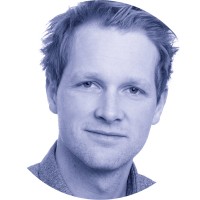Six out of ten contract GPs have considered quitting. I am looking forward to starting.

Photo: Sturlason
I identify myself as a general practitioner, even though I am working outside general practice for the time being. However, there is a lot of talk about crisis. A rebellion is underway (1). We are told that it is impossible to be a young, conscientious doctor. Nor is it possible to be an old, effective GP.
Six out of ten GPs consider leaving the profession (2). GPs work too much – 55 hours per week on average (3). Some sleep in their surgery.
I find myself in the middle of all this – a young doctor who wants to be a GP more than anything else. Self-employed, with responsibility for my own practice. How can this be? As a student, I got mentally lost in the hospital corridors. It was the dream of general practice that sustained my motivation. I thought that this was where I could best help reduce worries and solve problems.
When I was working in a hospital, many were dissatisfied with the working conditions, and rightly so (4). Too many patients came in, there were too few doctors, the shifts were too long and too busy. The managers showed little understanding of life on what we called ‘the floor’ – where the power to wield influence was minimal.
When I came to general practice, I came home. This was what I had expected it to be. In the daily grind, GPs rarely have anyone to blame for the way in which the activity is organised apart from themselves, given that they run their own practice.
I belong to a minority. The proportion of GPs who wish to be self-employed fell from 52 per cent in 2009 to 36 per cent in 2012 (5). As yet, however, 87 per cent of all Norwegian GPs are self-employed (6). As a GP, you therefore need to learn how to run a business. If you wish to work in this way and regard this form of working as a tool to design your practice in the way you prefer, there is little to beat the advantages of general practice: with your partners, you are free to choose and adapt the premises. You can build your own equipment park. You have the opportunity to recruit and look after your colleagues. Computer systems, internal logistics and patient flow can be optimised to maximum efficiency. You can plan your own appointments schedule, holidays and when to go on training courses.
Recently, 25 GPs from Trondheim who were all involved in the so-called ‘Trøndelag rebellion’ issued Håndbok om fastlegeordningen [Handbook for the contract GP scheme] (1). Here, the authors highlight many of the positive aspects of being a general practitioner. You come close to people and can help them recover over time. Therapeutic conversations with troubled patients can help solve problems at an early stage, and thus lower the costs to society. At the same time, the rebels succeed in elucidating what has become a growing problem for many Norwegian GPs: the sense of powerlessness and burnout caused by an unsurmountable workload.
I have good colleagues who choose to stay in general practice, but nevertheless share the rebels’ concerns. So does the Norwegian Medical Association, which adopted a resolution demanding five immediate measures for the contract GP scheme at its national board meeting (7).
Notwithstanding the concerns, these same good colleagues have also given me advice on how to survive in general practice. They advised me to accept living with uncertainty regarding a patient’s diagnosis, to impose limits and not set out to meet all the patient’s wishes and expectations. They also advised me to go home at a sensible time so as not to burn out. These are not the politicians’ challenges; each and every one of us needs to look after this ourselves.
These issues are not of recent origin. Already in 2000, before the introduction of the contract GP scheme, the Journal of the Norwegian Medical Association published an editorial with the title Er allmennmedisinens tid forbi? [Has time run out for general practice?] (8). Keywords were frustration, fatigue and dissatisfaction. The doctors were working too much. There was apprehension that the arrangement that puts general practitioners as the gatekeepers on the frontline would collapse.
The general practitioners are still there. The dream of establishing the perfect medical centre and being the moderator of our own practice is what draws many of us young doctors to general practice. Many would prefer a fixed salary (9), but not all of us. Some prefer to take responsibility for all aspects of their own practice. In order not to wear ourselves out we may possibly work a little less, and thus earn a little less than we might otherwise have done.
We now hope that the resolution from the national board meeting is heeded, so that the contract GP scheme can continue. With the right political initiatives, I and others may hopefully look forward to a future in what is claimed to be the most intellectually demanding job one can have in the field of medicine (10).